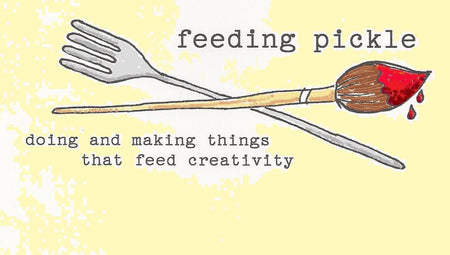He found it in the recesses of the engineering books at the local library. A book that had been sitting there untouched for so long that it had fallen off the registry in the computer. He deposited it on the counter, the librarian searching for and re-logging the book's existence, and he carried his buried treasure home.
He had unearthed a new mathematical system.
I discovered an unexpected kindred creative heart.
The book was "The Trachtenberg Speed System of Basic Mathematics." (A title that could make many quake in their boots, honestly.) But this fellow is worth getting to know beyond the dust jacket. Jakow Trachtenberg heralded a life of loving peace and loving math during the years of the first and second World Wars. Marked as a genius, he rose in rank in his studies, his teachings, and his work. What I find most genius is that he held "the firm opinion that everyone comes into the world with 'phenomenal calculation possibilities.'" I liked this guy from that sentence forward.
I know many don't hold mathematics in any terms of endearment. I know that some will close down this post *right here and now* for even having mentioned it. The feelings of frustration at the vast symbols and equations that just flashed before their eyes in absolutely no coherent order brings the tears, because "what in the world do I do with those numbers anyhow?!" (Do you relate?)
But read on, if you will. I found much more than mathematics in his heart. Math was his passion. Helping others to find the simplicity and order and familiarity of ordered numbers was his even greater passion. His creativity was fueled by this passion.
So great was his passion that his "Trachtenberg Speed System of Basic Mathematics" was formulated, not in a comfy office or regal lounge chair, though he held many high positions and married aristocracy. Instead, his system was born in a concentration camp. You see, being on Hitler's hit list, a death date was scheduled for Jakow. He had been sent to the worst of the concentration camps (yes, plural with an "s"). Mathematics was his mental respite in the horrific conditions. Numbers were familiar and constant to him in a time and place of utmost horror and torture. Because paper was a rare commodity, he created the speed system for math in his head. He wanted others to learn to calculate great magnificent numbers (read: thousands of numbers at a time) with ease and simplicity. He saved his precious paper bits for recording only his finished theories, working endless ginormous numbers fully in his mind. He escaped prison, camps, and bullets. He went on to found the Mathematical Institute in Zurich in 1950--the school that students (the sort that had experienced the dreaded drudgery of classic arithmetic) were known to show up 30 minutes early to class because they enjoyed it so much. He refused to let circumstances alter his passion.
If this book exists in the dusty recesses of your local library, go take a peek at it. Maybe not because of the math itself (unless that intrigues you, too!), but so that you can read even just the Foreword about the creative passion that this man had, and how even the worst circumstances in this world could not keep him from choosing to use what he did have to make something else, someone else, better.
What is at your disposal for feeding creativity this year?
I know no more than you do about what this year holds--have we ever known? I do know Who holds the days, and that each one has been written out for you, for me. I do know that we were created to be creative. And I know that circumstances are stepping stones, if we let them be.
So now what, 2021?
We're here to feed creativity with everything we have.
Even if, like Jakow, we would have nothing.
Always be creative,
Marie Winfield


2 comments
I’ve enjoyed reading this post and glanced back at some of the previous one too.
You are very encouraging and look at the simple things and ways that so many kids/adults can do to be creative.
Norma A Fitzwater
What a beautiful post and a great way to start the first full week of the new year! I would love to find a copy of this book and learn more about this man’s story and his math journey.
Allene